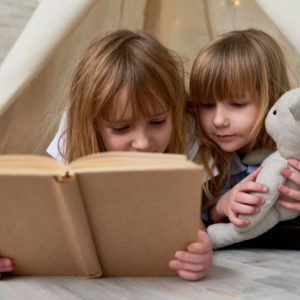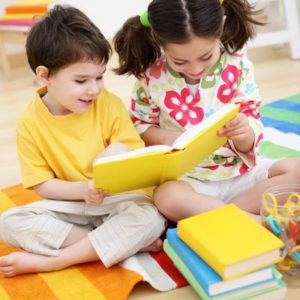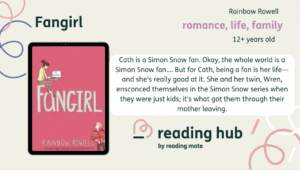Books can’t be simply labelled or placed into one category. But if your reading choices just include dungeons and dragons or you’re desperate to learn how to knit, genres can save an awful lot of time.
When it comes to choosing books to read, do you think these genres could be standing in the way of children discovering an author or series they love?

Before I met my husband, I only ever read fiction. Stories of love, loss and relationships filled my bookshelves, and I wasn’t prepared to ‘waste my time on anything else’. James accepted this and was very patient with me as I rejected all his non-fiction offerings. Until he recommended Educated by Tara Westover. It’s a fascinating memoir about her survivalist Mormon family, truly a remarkable read. I devoured it in days. Towards the end I was rationing it because I didn’t want it to end, you know the type? And now I primarily read non-fiction with the occasional fiction book during holidays.
The point I’m trying to make here is that books shouldn’t be pigeon-holed. Every book has been written with intent, purpose: to entertain. Children’s books, especially, are built to captivate and tantalise (these are now the only fiction books I read). So, how can you get your child to switch from graphic novels to poetry or Gangster Granny to Lemony Snicket? More to the point, how can we diversify your child’s reading choices in order to see whether they might be missing out on a magical reading experience?
The problem with genres and bookstores
Did you know that 80% of children’s books are published by only 8 companies? Those companies play a large role in deciding the commercial success of these books. As a result, the books stocked in large bookstores are those that have big names because inevitably they’ll sell quicker. Moreover, these bookstores are handily (and intentionally) organised by genres.

So, little Freddy who loves dinosaurs, can go to the dinosaur section. But, if all non-fiction books were just placed alphabetically by author for example, Freddy could stumble upon a book about volcanoes, space, the ocean etc. Therefore, broadening his horizons, opening up his world and filling his mind with possibilities which is ultimately what we hope for when children read, isn’t it?
The Book Trust’s Great Book Guide recommends books because each and every one will give your child a wonderful and enriching experience whilst reading. The books have been organised by age, meaning browsing for your child is super easy.
All books are made equal
I’m not encouraging you to discard genres entirely, just to think about how to use them. These categories could be impacting your children’s reading choices and perhaps inhibiting their reading journey.
When you next visit a library or bookstore, pick out a selection of multiple books and offer them to your child. Think of it like a menu in a restaurant, in order to make a fully informed decision, we need to know what else is available. This way your child won’t be influenced by a category that’s ‘too old for them’, ‘too young for them’, ‘girly’ etc.
Even better, take a look at the Great Books Guide with your child. The books featured have been carefully selected and truly are superb choices.
“Stories are our main way of making sense of ourselves and the world. That’s why they are so important.” – Dan Hade
Why not push the boat out with your KS3 readers, and introduce them to Rainbow Rowell’s Fangirl? Regardless of gender, this story is an engaging read. And we’ve got some activity ideas here for you to check out!


